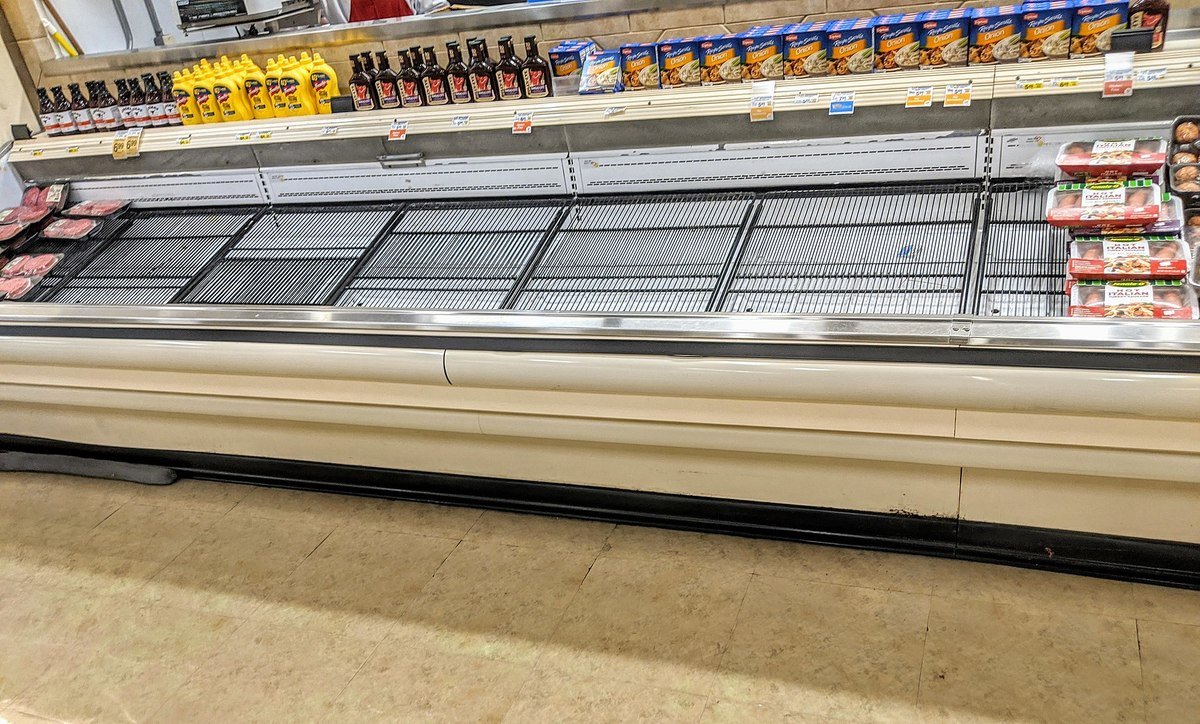
Photograph Source: Cullen328 – CC BY-SA 3.0
Big Ag has separated humankind from the process of creating food that sustains existence. This separation has been done for material gain. Big Ag has interrupted the most natural relationship, a spiritual relationship, between humanity and the land. This human/land connection supersedes all religions. It is humankind’s association with land that feeds us and fortifies people to grow and expand civilization. It is this divine relationship that has been interrupted by the economic agenda of Big Ag. That agenda, like in most industry, is to monetize human need, with little or no concern for people’s wellbeing.
This COVID-19 pandemic has heightened the contradictions existing in our food system. We have a hyper-concentration in the distribution of food throughout the country. There is grand irony in hearing one of the leaders of Big Ag express dismay at the current state of affairs.
John Tyson is a third-generation scion and board chairman of the family business that bears his name. Tyson Foods, headquartered in Springdale Arkansas, is the world’s second largest processor and marketer of chicken, beef, and pork. Tyson exports the largest percentage of beef out of the United States. Their revenues exceed $40 billion annually.
“The food supply chain is breaking,” wrote board chairman John Tyson in a full-page advertisement published simultaneously in The New York Times, The Washington Post and The Arkansas Democrat-Gazette. “There will be limited supply of our products available in grocery stores until we are able to reopen our facilities that are currently closed,” Tyson wrote.
President Donald Trump issued an Executive Order that invoked the Defense Production Act and commanded meat processing facilities to remain open. An analysis by Business Insider found at least 4,585 Tyson workers in 15 states have been diagnosed with COVID-19, and 18 have died. Trump’s order has prioritized meatpacker profits over the health and safety of workers, many of whom are immigrants, and created coronavirus hotspots.
The food system is broken! Where are the solutions? We need a comprehensive Small Farm and Urban Agriculture Homestead Act to support local food economies!! Some tentative steps have been taken. We have to go further.
Senator Cory Booker, joined by Senator Elizabeth Warren and Rep. Ro Khanna, has introduced a bill to phase out large-scale factory farming by 2040. The question is what will replace the current modalities of production? Access to land, labor, capital (both infrastructure and funding) and regulatory support has to shift from Big Ag to small farmers who live in the neighborhoods that they serve. There are billions of dollars already committed to the food system in the form of subsidies, education and research and other resources, that can fund a new food system that is more efficient, healthy and humane.
As it stands, the business of farming and ranching is increasingly concentrated, with few growers occupying much larger acreage. The number of farms in the U.S. peaked in 1935, at 6.8 million. By 2016, there were only 2.1 million farms, occupying the same number of acres. Large farms “eat up” smaller ones, by having greater access to land, equipment and markets. The small farmers that have weathered the onslaught of commercial farming are finding it difficult to survive. According to a 2016 USDA report, 59 to 78 percent of small farms, those with gross incomes up to $349,999, were operating in the red in 2015. On the other hand, farms with incomes of $1-5 million and above were more likely to bring in profits averaging 25%.
Building sustainable communities begins with a focus on infrastructure, equity and food self-sufficiency. Big Ag is highly scalable, but not replicable. They have the ability to become larger, but the possibility of their facilities and infrastructure being replicated are slim. However, the local food production provided by small farms and urban agriculture is highly replicable. Small farms and urban agriculture can address many of the issues faced by humanity and expand a very productive pre-industrial, regenerative local food economy.